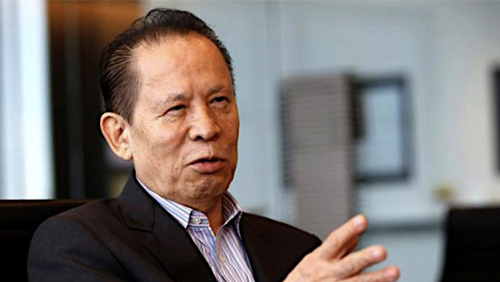After Kazuo Okada lost a court case in Macau against Wynn Macau and others in 2017, he wasn’t ready to admit defeat. He filed an appeal that has now been heard by Macau’s Court of Second Instance. As was the case the first time around, Okada has once again lost.
 Okada, alongside Universal Entertainment Corp. and Aruze USA, had sued over a stock redemption dispute a couple of years ago. Universal and Aruze eventually dropped out of the suit after they reached an agreement with Wynn Macau’s parent company, Wynn Resorts, which saw the parties reach a settlement worth $2.4 billion. Okada, however, wasn’t willing to give up the fight.
Okada, alongside Universal Entertainment Corp. and Aruze USA, had sued over a stock redemption dispute a couple of years ago. Universal and Aruze eventually dropped out of the suit after they reached an agreement with Wynn Macau’s parent company, Wynn Resorts, which saw the parties reach a settlement worth $2.4 billion. Okada, however, wasn’t willing to give up the fight.
Okada had been kicked off the board of Wynn Resorts in 2012 after the casino operator determined that he was “unsuitable” and could cost the company its licenses. At the time, Okada was the largest single shareholder, controlling Aruze’s stake in the company. Aruze is a subsidiary of Universal.
Wynn Resorts ultimately agreed to cancel Okada’s 20% holdings, which amounted to 24.5 million shares, and issue him a promissory note for around $1.9 billion. That amount was, at the time, a 30% discount on what Okada held via his shares.
Okada argued in his lawsuit that the deal was improper and that his compensation was undervalued. He tried to show that Wynn had a history of improper business activities, pointing to a $50-million payment made by a subsidiary of Wynn Macau in 2008 to Tien Chiao Entertainment and Investment Co. Ltd. in order to get the latter to not seek development of land in Cotai where Wynn hoped to build a resort. That land ultimately became the Wynn Palace in 2016. He sought fair compensation, as well as the dissolution of the Wynn Macau subsidiary that holds the operating license in Macau.
In July 2017, the Macau Court of First Instance dismisses the case, determining that the claims were unfounded. They also fined Okada as “vexatious litigants,” and the Court of Second Instance has upheld all of the lower court’s decisions.
With two rulings against him, Okada should probably let this one go and concentrate on the many other cases he is currently dealing with.